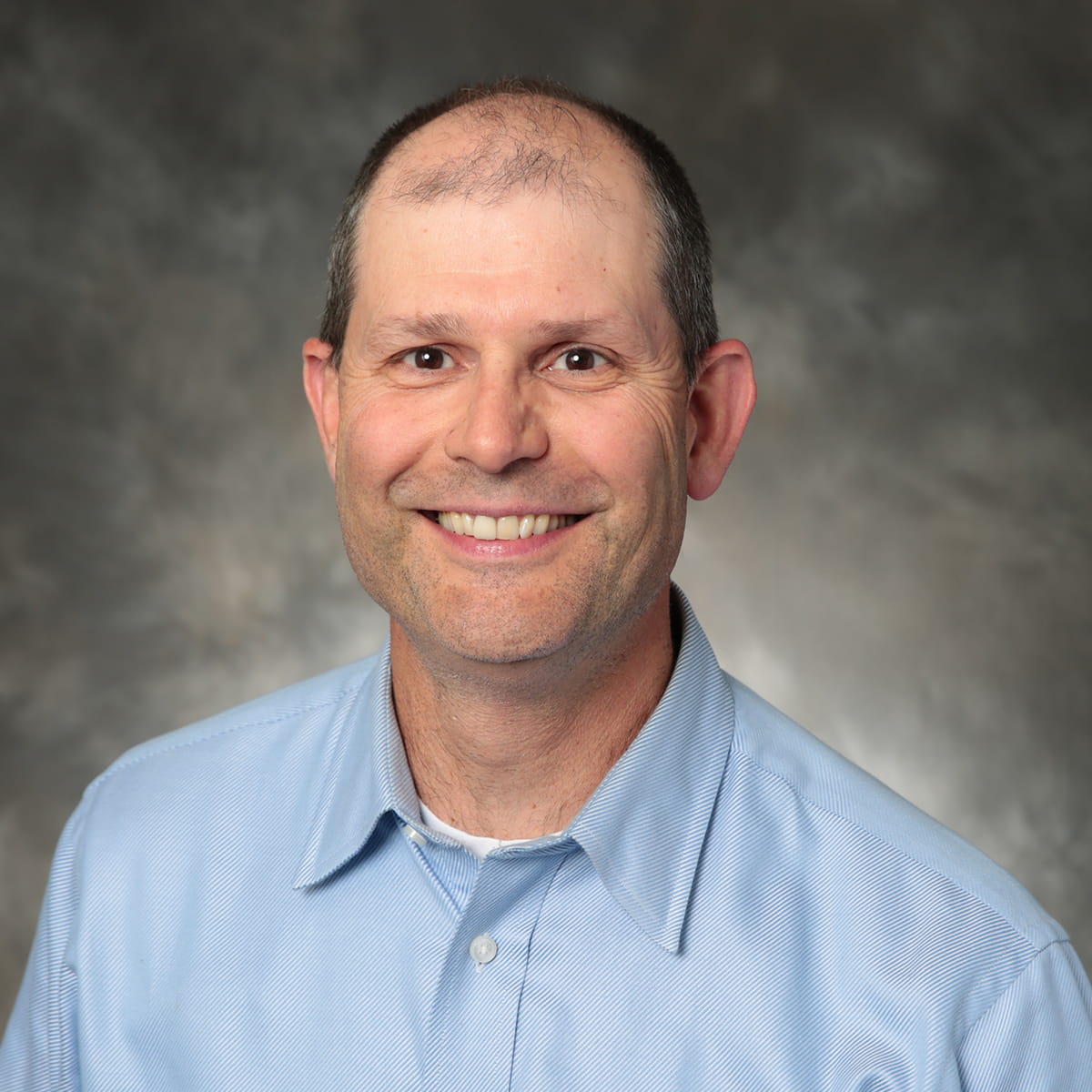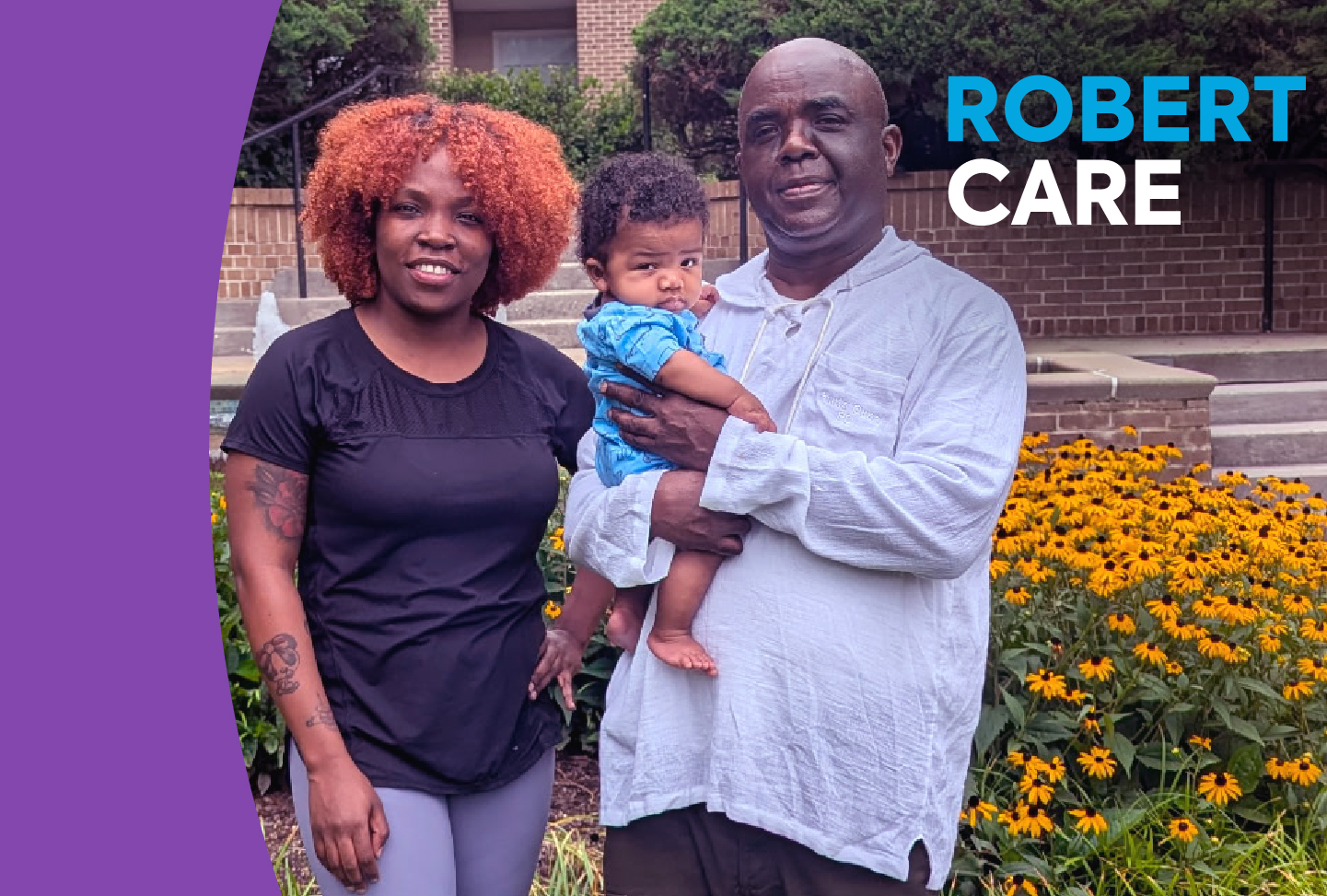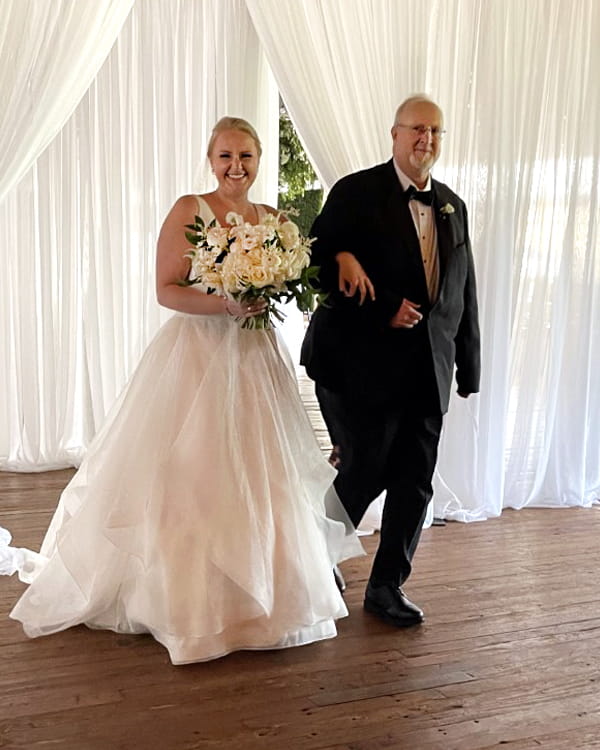RobertCare
Robert Frederick was living a typical life, going to work and spending time with his mother, siblings and children. But then it became hard to breathe when walking short distances or climbing stairs. He got dizzy. Perhaps most disturbingly, he passed out several times—once at a Braves baseball game he attended with his siblings.
"I didn't know what was going on!" Robert recalled.
Difficulty controlling AFib with medication
After passing out the first time, he went to urgent care and was then taken to the hospital by ambulance. He learned his symptoms were caused by atrial fibrillation (AFib), an irregular heartbeat.
Robert began to see Dr. David Caras, a Wellstar general cardiologist, and learned AFib is related to high blood pressure. Successfully managing high blood pressure often helps people keep AFib under control. Despite their efforts, AFib sent Robert to the emergency room two more times.
Suspicion of HCM
Dr. Caras reviewed Robert’s hospital records and found he had increased wall thickness of the left ventricle and a gradient—a pressure difference between the left ventricle and the aorta when the heart pumps. These findings were consistent with a condition called hypertrophic cardiomyopathy (HCM). Characterized by abnormal thickening of the heart muscle, this disease makes it difficult for the heart to pump blood effectively.
Dr. Caras referred Robert to Dr. Melissa Burroughs, an HCM specialist at Wellstar. As a Center of Excellence designated by the Hypertrophic Cardiomyopathy Association, Wellstar is one of the leading providers of comprehensive HCM care in Metro Atlanta.
"We have physicians in the group—designated HCM specialists—that are the point person of the patient’s care," Dr. Burroughs explained. “This includes close communication and collaboration with electrophysiologists, surgeons, advanced heart failure specialists, social workers and behavioral health professionals.”
A rare finding leads to Mayo Clinic Care Network collaboration
Robert said, “Dr. Burroughs wanted to do genetic testing to verify that I had HCM."
But genetic testing revealed a rare genetic variant—one not known to be associated with HCM. Dr. Burroughs called it a “diagnostic conundrum.” The genetic variant found was typically associated with a different cardiac disease that Robert did not have. However, he did have clear signs of HCM.
To investigate further, Dr. Burroughs collaborated with other HCM experts through the Mayo Clinic Care Network, of which Wellstar is a member. Mayo Clinic, which is also an HCM Center of Excellence, provided access to its unpublished database, finding Robert’s rare mutation was present in two other family groups with HCM.
“It’s very important that we add to the science—that we include our patients in the registry to enhance what is already known about HCM,” Dr. Burroughs said.
Robert added, “Dr. Burroughs is very persistent. She wanted to know, ‘Why are you having these problems? What’s the root cause?’ She went above and beyond to find that out.”







